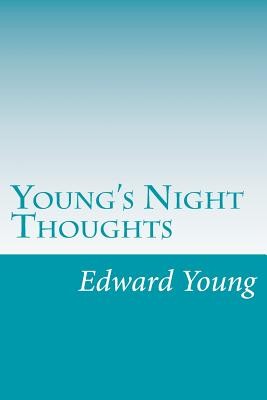
- We will send in 10–14 business days.
- Author: Edward Young
- Publisher: CreateSpace Independent Publishing Platform
- Year: 2014
- Pages: 186
- ISBN-10: 1499277156
- ISBN-13: 9781499277159
- Format: 15.2 x 22.9 x 1 cm, minkšti viršeliai
- Language: English
- SAVE -10% with code: EXTRA
Reviews
Description
Between the period of George Herbert, and that of Edward Young, some singular changes had taken place in British poetry as well as in British manners, politics, and religion. There had passed over the land the thunderstorm of the Puritanic Revolt, which had first clouded and then cleared, for a season, the intellectual and moral horizon. The effect of this on poetry was, for such fugitive though felicitous hymns as those of Herbert, to substitute the epic unities and grand choral harmonies of Milton. Then came the Restoration-the Apotheosis of falsehood; including in that term false principles, false politics, and false taste. Britain became the degraded slave of France, at once in laws and in literature. Dryden, indeed, maintained, in some measure, the character and the taste of his nation, but he stood almost alone. To him succeeded Addison and Pope, both gifted but both timid men, whose genius, great as it was, never, or rarely, ventured on original and daring flights, and who seemed always to be haunted by the fear of French criticism. Pope, especially, lent all his influence to confirm and seal the power of a foreign code of literary laws; and so general and so deep was the submission, that it is to us one of the strongest proofs of Edward Young's genius, that he ventured, in that polished but powerless era, to uplift a native voice of song, and not to uplift it in vain; for, if he did not absolutely make a revolution, or found a school, he yet established himself, and left his poetry as a glorious precedent to all who should afterwards be so hardy as to "go and do likewise."
- Author: Edward Young
- Publisher: CreateSpace Independent Publishing Platform
- Year: 2014
- Pages: 186
- ISBN-10: 1499277156
- ISBN-13: 9781499277159
- Format: 15.2 x 22.9 x 1 cm, minkšti viršeliai
- Language: English English
Between the period of George Herbert, and that of Edward Young, some singular changes had taken place in British poetry as well as in British manners, politics, and religion. There had passed over the land the thunderstorm of the Puritanic Revolt, which had first clouded and then cleared, for a season, the intellectual and moral horizon. The effect of this on poetry was, for such fugitive though felicitous hymns as those of Herbert, to substitute the epic unities and grand choral harmonies of Milton. Then came the Restoration-the Apotheosis of falsehood; including in that term false principles, false politics, and false taste. Britain became the degraded slave of France, at once in laws and in literature. Dryden, indeed, maintained, in some measure, the character and the taste of his nation, but he stood almost alone. To him succeeded Addison and Pope, both gifted but both timid men, whose genius, great as it was, never, or rarely, ventured on original and daring flights, and who seemed always to be haunted by the fear of French criticism. Pope, especially, lent all his influence to confirm and seal the power of a foreign code of literary laws; and so general and so deep was the submission, that it is to us one of the strongest proofs of Edward Young's genius, that he ventured, in that polished but powerless era, to uplift a native voice of song, and not to uplift it in vain; for, if he did not absolutely make a revolution, or found a school, he yet established himself, and left his poetry as a glorious precedent to all who should afterwards be so hardy as to "go and do likewise."


Reviews